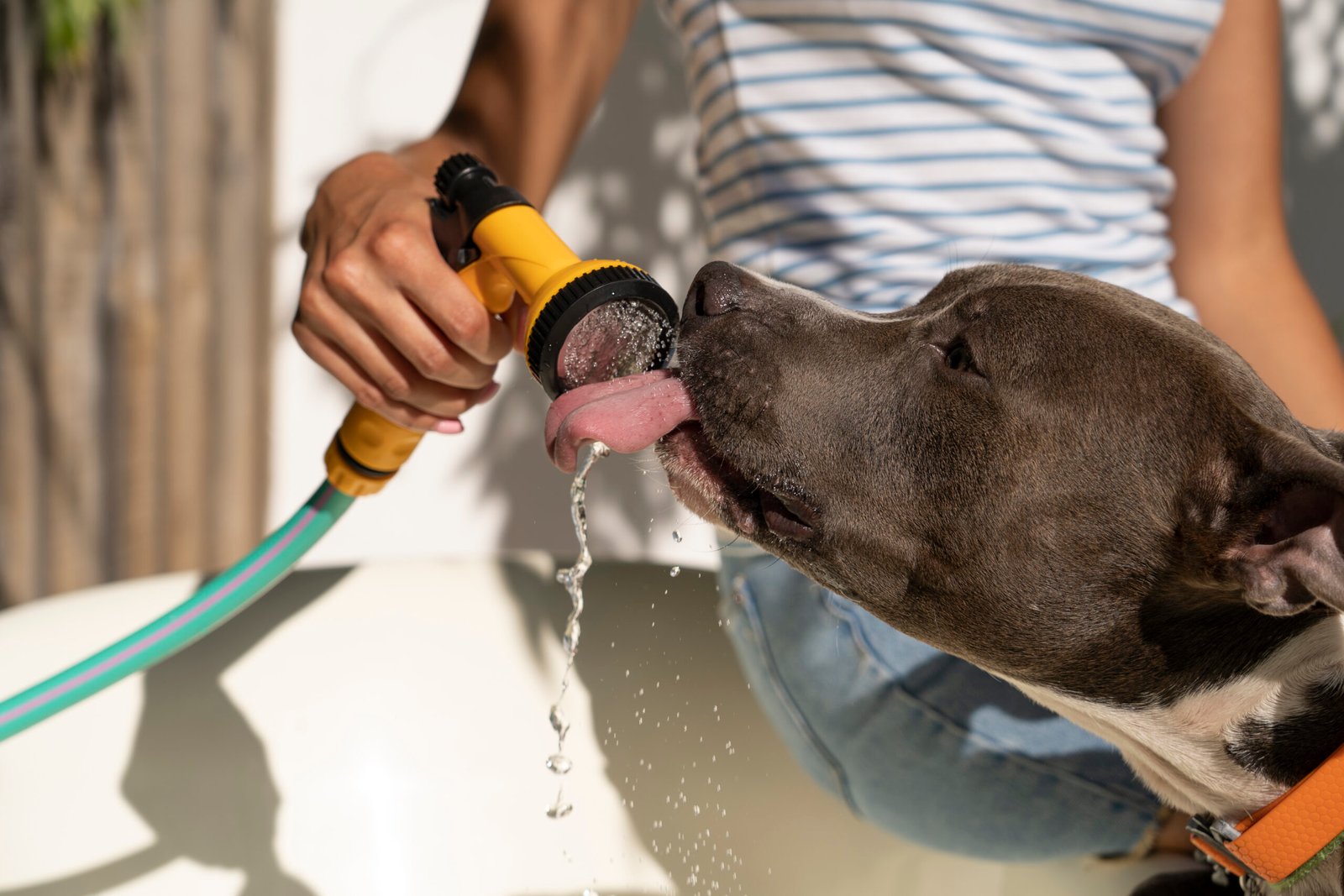Keep your pets safe this summer! Discover heatstroke signs, prevention tips, and essential care steps to enjoy the season together.
What is Heatstroke?
Heatstroke occurs when a pet’s body temperature rises to dangerous levels. Normally, a dog’s temperature ranges from 100 to 102.5 degrees Fahrenheit. However, when temperatures exceed 104 degrees, they can suffer severe consequences. Essentially, heatstroke is a life-threatening condition. It can lead to organ failure and, in extreme cases, death. Thus, understanding the risks is crucial for every pet owner.
Recognizing the Signs of Heatstroke
Knowing the signs of heatstroke can save your pet’s life. Common symptoms include excessive panting, drooling, and a rapid heartbeat. Additionally, your pet may show signs of weakness, confusion, or even collapse. In more severe cases, they may experience vomiting or seizures. If you notice any of these symptoms, act quickly. Time is of the essence when it comes to heatstroke.
Prevention is Key
Fortunately, heatstroke is preventable. Here are several effective strategies to keep your pet safe during the summer heat:
- Limit Outdoor Activities
First, consider the timing of your walks. Early mornings and late evenings are typically cooler. Try to avoid walks during the hottest part of the day, usually between 10 AM and 4 PM. - Provide Ample Water
Hydration is essential. Always ensure your pet has access to fresh, clean water. Carry water with you during walks to keep your pet hydrated. - Create Shade
When outdoors, provide shaded areas for your pet. Whether it’s a tree or a pop-up tent, shade can help your pet stay cool. - Watch the Asphalt
Additionally, remember that pavement can get extremely hot. Before walking, check the ground with your hand. If it’s too hot for you, it’s too hot for your pet’s paws. - Use Cooling Products
You can also invest in cooling mats or vests. These products help regulate your pet’s body temperature, especially during extreme heat.
Recognizing Vulnerable Pets
Some pets are more susceptible to heatstroke than others. For instance, brachycephalic breeds like Bulldogs and Pugs have difficulty breathing in hot weather. Likewise, older pets or those with health issues are at greater risk. Monitor these pets closely during summer activities.
What to Do in Case of Heatstroke?
If you suspect your pet is suffering from heatstroke, immediate action is vital. First, move them to a cooler area, preferably indoors or in the shade. Next, offer them water to drink. You can also wet their fur with cool (not cold) water, focusing on areas like the paws and belly. However, do not use ice or extremely cold water, as it may shock their system.
After these steps, seek veterinary care. Even if your pet seems better, they may still need medical attention. Heatstroke can have lasting effects, and a veterinarian can provide the necessary care.
Conclusion: Enjoy Summer Safely with Your Pet
In summary, summer can be a delightful time for you and your pets. Nevertheless, awareness of heatstroke and its dangers is crucial. By recognizing the signs, taking preventative measures, and knowing how to respond, you can ensure a safe and enjoyable summer. Let’s make this season memorable for both you and your furry friends, while keeping them safe from the heat!
